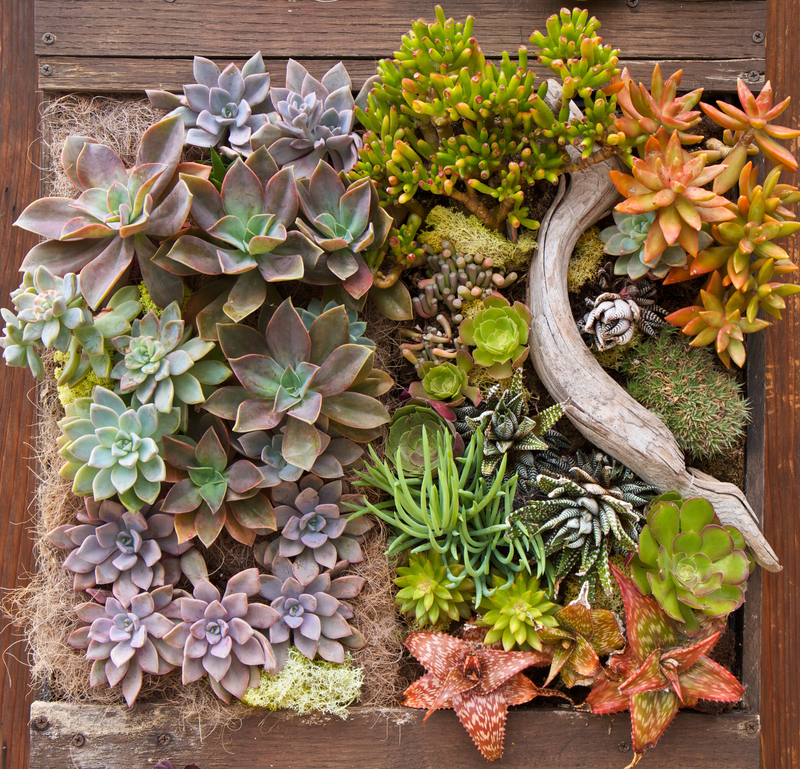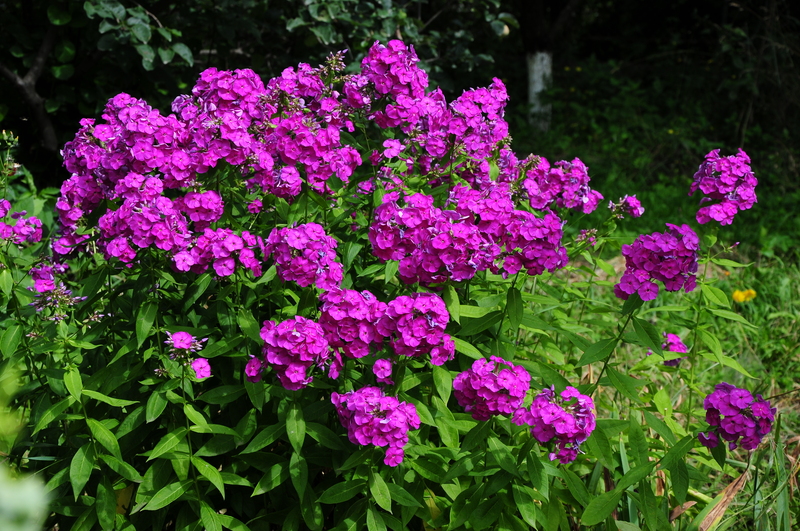Outdoor Serenity with Peaceful Zen Garden Designs
Posted on 13/08/2025
Outdoor Serenity with Peaceful Zen Garden Designs
Experience tranquility in your own backyard with the timeless beauty and soothing atmosphere of Zen garden design. Whether your property is large or small, including elements of a Japanese Zen garden can transform any outdoor space into a sanctuary for meditation, reflection, and rejuvenation. In this comprehensive guide, we'll explore how you can achieve outdoor serenity using peaceful Zen garden designs, the history of this aesthetic, essential features, design ideas, and practical tips so you can create your own outdoor haven.
What is a Zen Garden?
A Zen garden--also known as a Japanese rock garden or karesansui--is a traditional landscape style originating in Japan. Characterized by simplicity, minimalism, and symbolism, these gardens use elements like gravel, rocks, sand, water features, and carefully selected plants to evoke nature and promote mindfulness. The design encourages meditation and contemplation, providing a peaceful outdoor space that invites users to unwind and connect with the present moment.
The Philosophy Behind Peaceful Zen Garden Designs
Zen garden landscaping is rooted in the principles of Zen Buddhism, emphasizing harmony, balance, and impermanence. These gardens are not only decorative but also spiritual, designed to be a physical representation of inner tranquility. Elements such as rock arrangements may symbolize mountains or islands, while raked gravel or sand suggests flowing water. This deliberate simplicity encourages introspection and fosters a sense of calm.

Key Elements of Outdoor Zen Gardens
To capture genuine outdoor serenity in your space, it's important to understand the core components of peaceful Zen garden designs:
- Gravel or Sand: Used to create a raked surface imitating rippling water or ocean waves.
- Rocks and Stones: Placed purposefully to symbolize islands, mountains, or natural elements.
- Water Features: Though not always present, a pond or stream can add serene movement and sound.
- Minimalist Plants: Mosses, ornamental grasses, dwarf trees, and bamboo contribute subtle greenery.
- Lanterns and Ornaments: Stone lanterns, bridges, or statues can add focal points steeped in symbolism.
- Paths and Walkways: Stepping stones or gravel paths encourage mindful movement and slow the visitor's pace.
Symbolic Meanings in Zen Garden Features
Zen gardens are filled with symbolism. *Rocks* often embody stability, strength, and endurance, while the flowing lines raked in *gravel or sand* represent the impermanence and constant change of life. Water features are symbolic of purity and renewal, enhancing the tranquil soundscape of your garden. Plants are sparse, suggesting the beauty of emptiness and the importance of space for thought.
Benefits of Zen Garden Outdoor Serenity
Introducing peaceful Zen garden designs into your yard goes beyond aesthetics. The benefits include:
- Stress Relief: The simplicity, order, and calming effect of a Zen landscape help reduce mental stress and anxiety.
- Meditation Space: The garden is ideal for yoga, meditation, or simply enjoying a few quiet moments outdoors.
- Aesthetic Beauty: Minimalist elegance and natural materials suit any style of home or garden.
- Low Maintenance: Zen gardens typically require less upkeep than traditional lawns or flower beds.
- Year-Round Appeal: Evergreen plants and stone elements provide interest in every season.
How to Design Your Own Tranquil Zen Garden
If you're ready to embrace *outdoor serenity* at home, follow these steps to create your own Zen retreat:
1. Choose Your Location
Ideally, select a quiet corner of your yard where you can enjoy privacy. Even a small patio or balcony can be transformed! Ensure the site is visible from your main living areas or windows, extending the sense of calm inside as well.
2. Plan the Layout
Sketch a simple layout incorporating key Zen garden features. Consider how you'll move through the space, where you'll sit or meditate, and what views you'd like to highlight. Zen gardens are asymmetrical, so avoid formal, straight lines.
3. Prepare the Site
Remove grass or existing plants. For a traditional touch, lay landscape fabric to suppress weeds, then layer with fine gravel or white sand to a depth of 2-3 inches. This will be the raking surface.
4. Select and Place Rocks
Arrange stones in odd numbers, using various sizes to represent natural elements. Place larger rocks upright as mountains or islands, and smaller stones as accents. Trust your intuition--Zen design values natural, imperfect beauty (*wabi-sabi*).
5. Add Raked Patterns
Use a wide-toothed wooden rake to draw wavy or circular patterns in your gravel or sand, imitating the flow of water or gentle breezes. This can be a meditative activity, and patterns can be changed as often as you like.
6. Incorporate Plants Sparingly
Opt for low-maintenance greenery like moss, ferns, dwarf pines, or bamboo. Group small clumps of plants near rocks for a natural effect but keep the palette minimal. The negative space is as important as what you plant.
7. Add Finishing Touches
- Stone lanterns or water basins enhance authenticity and provide visual interest.
- Seating: A simple wooden bench or flat rock invites quiet reflection.
- Water feature: Consider a small pond, bamboo fountain (shishi-odoshi), or trickling stream for added peace.
Creative Peaceful Zen Garden Design Ideas
Here are variations of outdoor Zen garden designs to inspire your personal retreat:
Modern Zen Courtyard
Integrate sleek stone pavers, minimalist planters, and a geometric layout. Use black or grey gravel for a contemporary twist, complemented by a gurgling water wall or sculptural bamboo feature.
Mini Zen Desk Garden
No yard? No problem! Create a tabletop Zen garden with a shallow tray, fine sand, and a few pebbles. Use a miniature rake to craft soothing designs--perfect for stress relief at work.
Moss Garden Sanctuary
Replace most sand or gravel with lush carpet moss for a soft, verdant oasis. Add winding stepping stones and a low stone lantern for timeless appeal.
Zen Pathways
Transform a side yard with a narrow gravel path lined with river rocks and clusters of ornamental grasses. Flank the path with upright stones and soft lighting for evening strolls.
Bamboo Privacy Screens
Plant clumping bamboo along the garden's perimeter for privacy and a gentle rustling sound in the breeze. Combine with a stone bench and gravel to maximize serenity.
Maintenance Tips for Tranquil Zen Landscapes
Peaceful Zen gardens are famous for their low-fuss upkeep:
- Regular Raking: Refresh sand or gravel patterns weekly for an inviting appearance and as a meditative practice.
- Weed Control: Hand-pull any weeds that appear in the gravel or sand.
- Pruning: Keep plants neat and shapes soft, removing any dead foliage.
- Rock Washing: Clean stones occasionally to remove moss or debris.
- Refill Gravel or Sand: Top up surfaces as needed to maintain a level appearance.
- Seasonal Adjustments: Swap lanterns or add potted plants for a subtle seasonal refresh.

The Difference Between Japanese Zen Gardens and Other Styles
While many Asian-inspired gardens evoke tranquility, peaceful Zen garden designs stand out for their minimalism and spiritual symbolism. Traditional Japanese gardens may include vibrant flowers, pagodas, and sprawling ponds, whereas Zen gardens excel at using less to create more--every element is intentional and loaded with meaning. This approach fosters a meditative atmosphere, making Zen gardens a top choice for those seeking outdoor serenity.
Frequently Asked Questions about Outdoor Zen Gardens
- Can I create a peaceful Zen garden in a small space?
Absolutely. Even a balcony or corner patio can become a serene retreat with a few rocks, a tray of sand, and minimalist plants. - What are the best plants for a Zen garden?
Choose evergreens like dwarf pine, Japanese maple, bamboo, moss, azaleas, and ferns for year-round texture and color. - Do Zen gardens require a lot of maintenance?
Minimalist plantings and stone features mean upkeep is low; occasional raking, pruning, and gravel replenishment suffice. - Is a water feature necessary?
Not at all--gravel or sand can symbolize water, but a reflecting pond or bamboo fountain can enhance the atmosphere if space allows. - How do I add lighting to my Zen garden?
Use subtle, low-voltage fixtures or lanterns to highlight pathways and rocks without overpowering the natural ambiance.
Incorporate Outdoor Serenity with Peaceful Zen Garden Designs Today
Embracing the serenity of outdoor Zen garden designs is a powerful way to enhance your home, calm the mind, and reconnect with nature. The beauty of a Zen garden lies in its simplicity, flexibility, and ability to suit any outdoor space. By combining natural materials, a thoughtful layout, and symbolic features, you'll create an eternal sanctuary available just outside your door. Begin planning your tranquil retreat today and discover the profound peace that comes with your own piece of Japanese garden heritage.
Explore Peaceful Zen Garden Ideas for Lasting Outdoor Tranquility
Ready to start? Gather inspiration, select your favorite elements, and embark on your own journey towards outdoor serenity with a peaceful Zen garden design. Whether you seek a place for meditation, reflection, or simply to enjoy nature's gentle rhythms, your sanctuary awaits--crafted stone by stone, raked line by line, in harmony with the world around you.
```Latest Posts
Cultivate Success with 9 Beginner Gardening Tips
Transform Your Yard: Ingenious Gardening Tips for Dog-Friendly Spaces
From Soil to Sky: Gardening's Role in Climate Resilience

